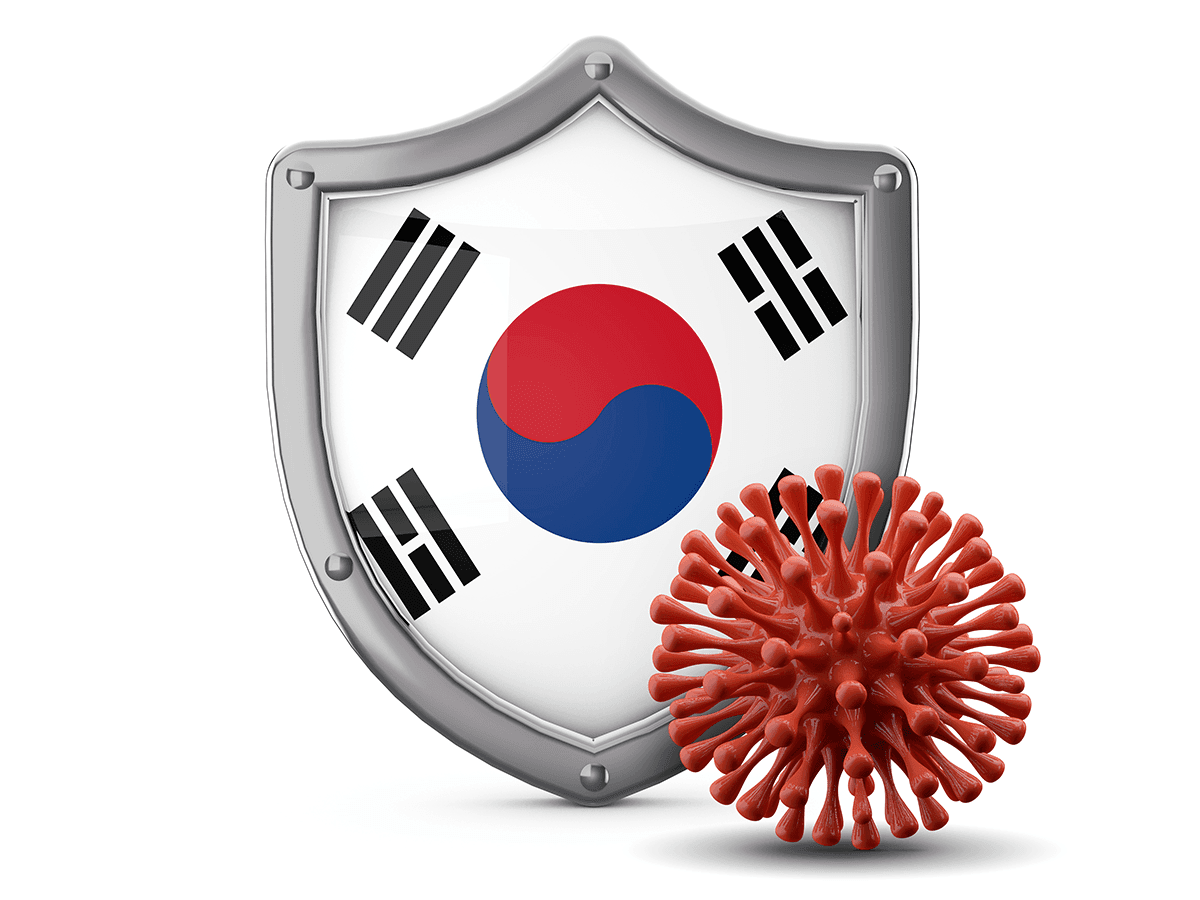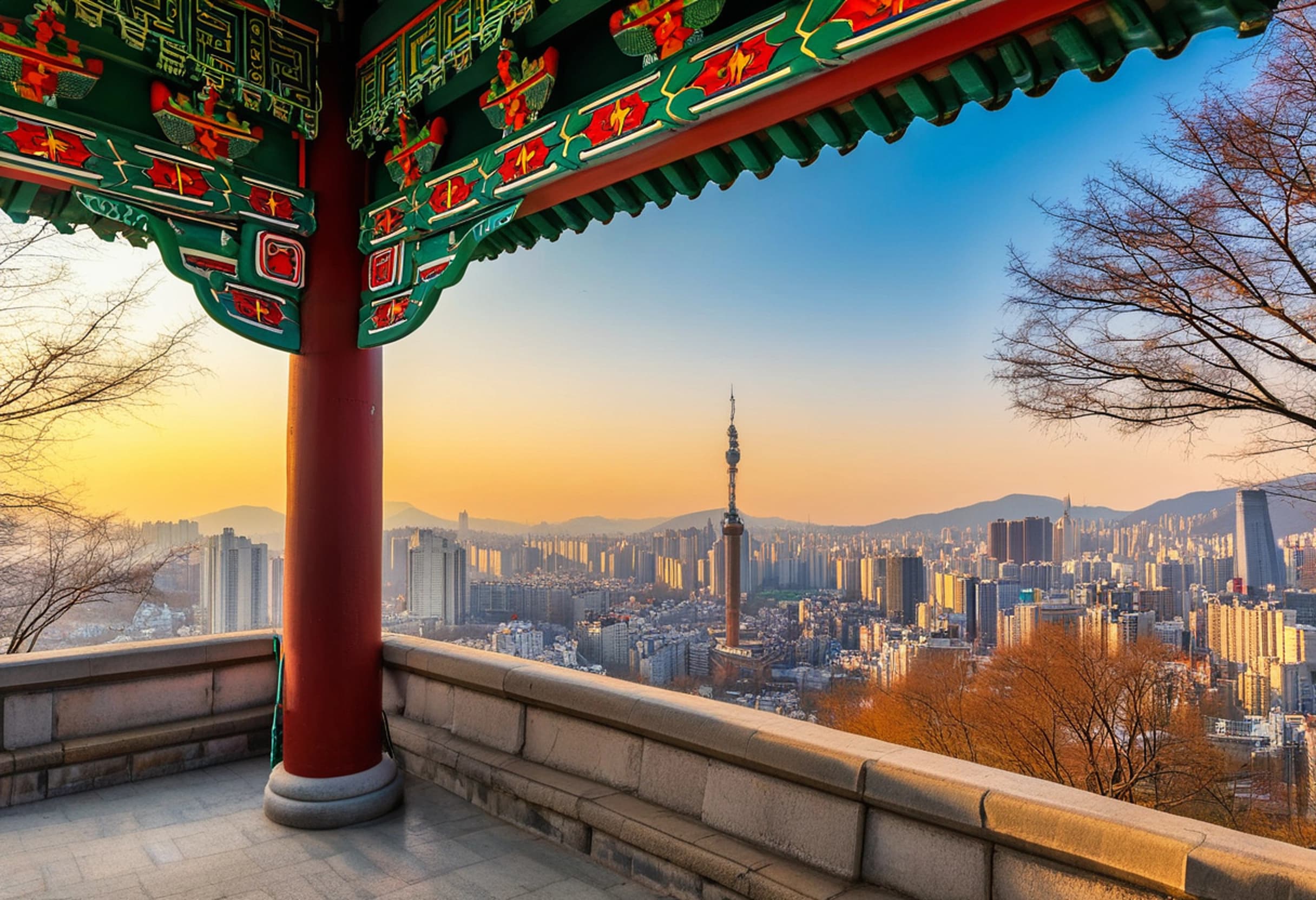COVID-19 Immigration-related Measures
The following immigration-related measures are a set of frequently asked questions (FAQs) and points provided by the Ministry of Justice Situation Room in regards to the COVID-19 situation, published on February 19, 2020.
*Please note that this is an unofficial translation provided by the Korea Ministry of Justice (Korea MOJ) for reference only in regards to COVID-19 immigration-related measures in South Korea.
—
Q1. Would the recent entry restriction measures apply to nationals of countries that concluded a visa waiver agreement with the Republic of Korea, such as Thailand?
A1. No, they will not be subject to the entry restriction measures.
- Nationals of countries that concluded a visa waiver agreement with the Republic of Korea, such as Thailand, Singapore, and Malaysia, are not subject to the recent entry restriction measures.
- However, if the person has visited Hubei Province, China in the past 14 days before departing for the Republic of Korea, that person’s entry will be restricted.
- The Republic of Korea concluded visa waiver agreements with a total of 109 countries. The visa waiver countries can be classified into 3 categories in accordance with the types of passports: diplomatic, official, and ordinary. For ordinary passport holders, the following 66 countries are exempt from visa:
- Malaysia, Singapore, United Arab Emirates, Israel, Kazakhstan, Thailand, Turkey, Guatemala, Grenada, Nicaragua, Dominican Republic, Commonwealth of Dominica, Mexico, Barbados, Bahamas, Venezuela, Brazil, Saint Lucia, Saint Vincent and the Grenadines, Saint Kitts-Nevis, Suriname, Haiti, Antigua and Barbuda, El Salvador, Uruguay, Jamaica, Chile, Costa Rica, Colombia, Trinidad and Tobago, Panama, Peru, Greece, Netherlands, Norway, Denmark, Germany, Latvia, Russia, Romania, Luxembourg, Lithuania, Liechtenstein, Malta, Belgium, Bulgaria, Sweden, Switzerland, Spain, Slovakia, Iceland, Ireland, Estonia, United Kingdom, Austria, Italy, Czech Republic, Portugal, Poland, France, Finland, Hungary, Lesotho, Morocco, Tunisia, New Zealand
Q2. Would the recent entry restriction measures apply to nationals of countries who are eligible for visa-free entry although a visa waiver agreement was not concluded with the Republic of Korea, such as the United States?
A2. No, they will not be subject to the entry restriction measures.
- Nationals of countries that have not concluded a visa waiver agreement with the Republic of Korea but have been designated as the “47 visa-free entry countries” for reasons such as reciprocity, like the United States, Canada, Japan, and Australia, are not subject to the recent entry restriction measures.
- However, if the person has visited Hubei in the past 14 days before entering Korea, that person’s entry will be restricted.
- The designated 47 visa-free entry countries or regions are as follows:
- Brunei, Qatar, Saudi Arabia, Oman, Bahrain, Japan, Hong Kong, Macao, Taiwan, Kuwait, United States, Canada, Argentina, Honduras, Paraguay, Guyana, Ecuador, Monaco, Montenegro, Vatican, Bosnia and Herzegovina, Cyprus, San Marino, Albania, Andorra, Serbia, Croatia, Slovenia, Guam, Fiji, Nauru, Palau, Kiribati, Marshall Islands, Solomon Islands, Micronesia, New Caledonia, Samoa, Tonga, Tuvalu, Australia, South Africa, Swaziland, Mauritius, Seychelles, Botswana, Lebanon (diplomatic and official passport holders)
Q3. Would a person who will only transfer flights at the airport and not enter the Republic of Korea be subject to the recent entry restriction measures?
A3. The recent entry restriction measures will only apply to flights departing from China. (This will apply to nationals of countries where a visa is required to enter the Republic of Korea, such as China.)
- However, even for passengers on flights departing from countries other than China, the person will be restricted entry:
① if he/she holds a passport issued in Hubei Province or
② holds a valid visa previously issued by the Korean Consulate General in Wuhan, Hubei Province, China, or
③ has visited Hubei in the past 14 days.
Q4. Will crew members of aircraft and ships entering the Republic of Korea be restricted visa-free entry?
A4. No, they will not be subject to the entry restriction measures.
- However, the crew member will be restricted entry if he/she
① holds a passport issued in Hubei Province, China, or
② holds a valid visa previously issued by the Korean Consulate General in Wuhan, Hubei Province, China, or
③ has visited Hubei in the past 14 days.
Q5. If the spouse of a Korean national is a Chinese national, would the Chinese spouse be excluded from the recent entry restriction measures? If so, what would the procedure be?
A5. In principle, a spouse of a Korean national, lineal ascendant and descendant, and permanent residents are subject to restriction. However, when the person agrees to the self-quarantine measures and undergoes immigration clearance, he/she may obtain permission to enter Korea.
Q6. Does the Republic of Korea government continue to issue visas for Chinese nationals, as previously done, after the COVID-19 outbreak?
A6. As measures to contain the spread of COVID-19, submission of Certificate of Health has become mandatory when applying for Republic of Korea visas.
- In addition, the Korean government has stepped up its criteria for reviewing the visa application. Now the Korean Embassy or Consulate Generals in China are having enough time in reviewing the visa application, are checking whether the applicant has visited Hubei or stayed in Hubei, and reviewing whether the applicant is under incubation period since the receipt of visa application.
- However, holders of passports issued in Hubei (yet, those who have proved that he/she has not visited/stayed in Hubei within the recent 14 days are allowed to enter the Republic of Korea as an exception) as well as those who have visited/stayed in the Province within the recent 14 days are, in principle, not eligible to obtain Republic of Korea visas.
Q7. What should foreigners with symptoms of the COVID-19 or infected foreigners do if his/her Period of Stay expired while under quarantine/treatment?
A7. They need to fully follow the directions from the health authorities until quarantine is lifted after receiving treatment for the virus as no restrictions will be imposed for exceeding the period of stay while under quarantine/treatment, as long as he/she applies for Extension of Stay or departs from the Republic of Korea within the designated period* after receiving treatment.
* Within 10 days for short-term visitors, and within 30 days for registered aliens (or who reported his/her residence)
Q8. Foreign nationals departing from Hubei are now barred from entering the Republic of Korea. Are there any support measures in place to help those foreigners, who have already entered the nation after having previously resided in Hubei?
A8. Chinese nationals who are not eligible for Extension of Stay with his/her current Status of Stay in the Republic of Korea, if verified to have resided in Hubei through a family register or certificate of residence, are eligible to receive ‘Permission for Extension of Stay for Departure’ to legally stay in the Republic of Korea for certain period of time under Article 32 of the Enforcement Regulations of the Immigration Act.
Q9. Does the KCDC Call Center (1339) provide counseling services in foreign languages regarding COVID-19 infection?
A9. Foreign residents in the nation can ask the 1339 Call Center for help. The Immigration Contact Center (1345) under the Ministry of Justice provides it with three-way interpretation services when a foreign resident who has reached the KCDC Call Center needs interpretation assistance to get counseling regarding COVID-19 infection.
Q10. Can illegal immigrants get tested for COVID-19?
A10. According to Paragraph 2, Article 92 of the Enforcement Decree of the Immigration Act, exemption from reporting obligation will be given to the civil servant in charge who acknowledges such immigration status when an immigrant visits the hospital to get tested for COVID-19. Please note that Korean immigration offices do not crack down on medical institutions or collect information on illegal immigrants who have a record of hospital visit. Thus, illegal immigrants can feel free to visit local hospitals when they have symptoms of COVID-19.
Q11. Are illegal immigrants in quarantine equally entitled to fine exemption and loosened entry ban restrictions just as those who declared voluntary departure?
A11. No. Just because illegal immigrants received treatment of an infectious disease, they will not be given the equal benefits of those who declared voluntary departure, when the illegal immigrant’s personal information and whether they are willing to declare voluntary departure have not been verified. However, if they declare voluntary departure after being released, the first date of the treatment will be deemed as the declared day so that no disadvantages will be given because of the quarantine measure. (Documents will be required for proof of treatment of infectious diseases.)
Q12. Upon request of relevant agencies can the Ministry of Justice provide the immigration record or the alien registration information (including those who reported domestic residence) of Koreans and foreigners?
A12. All personal information collected and managed by the Ministry of Justice is maintained according to the Personal Information Protection Act. Therefore, in order to use or disclose personal information for other than the purpose of which it was collected, it should fall under any of the sub-paragraphs of Article 18 Paragraph 2 of the Personal Information Protection Act, such as ‘consent is obtained from the data subject’ or ‘special provisions exist in other laws’.
- As the COVID-19 is “an infectious disease that has a serious impact on public safety and security, and public health”, the personal information can be provided for other than its original purpose pursuant to Article 58 Paragraph 1 Subparagraph 3 of the Personal Information Protection Act. Therefore, when relevant agencies request information such as the immigration record or alien registration information, the Ministry of Justice promptly provides the information, to the extent necessary for the purpose of preventing the spread of the virus.
Q13. It is said that the naturalization ceremony – taking a sworn declaration and receiving a certificate of naturalization – has been simplified as a response to the outbreak of COVID-19. What are the reasons behind the decision?
A13. As more than 100 people are expected to participate in a naturalization event*, we were concerned that this could possibly cause the risk of secondary infection of the virus. For this reason, the Ministry of Justice decided to have a simplified ceremony.
* In accordance with the revised Korean Nationality Law (20 Dec 2018), a naturalized citizen or a person who restores his or her Korean nationality must swear an oath as a Korean citizen in front of the Minister of Justice and receives a Certificate of Naturalization or Restoration of Citizenship. This step is necessary to complete the Naturalization Process.
- Given the situation, the Ministry of Justice has decided to hold a small ceremony, instead of large scale gatherings, where each naturalized Korean or person who restores his or her citizenship visits a local immigration office to take the oath of naturalization and make a pledge to perform all the duties faithfully as a Korean citizen.
- Such measures will be maintained until the government lowers its infectious disease alert level to at least Yellow or lower. (Yellow refers to Level 2 out of a 4-level national crisis management system).
Q14. I have been informed that the social integration program is being put on hold as part of the COVID-19 related measures. Can you explain why such measures are being put in place?
A14. Based on possible human to human transmission of the infectious virus, the Ministry of Justice has temporarily suspended the Korea Immigration & Integration program* (KIIP) and the Initial Orientation Course** for immigrants to contain the further spread as a precautionary measure.
* An educational program designed to help foreign residents and naturalized Koreans acquire basic knowledge and information about life in Korea so that they can adapt to the Korean society and become a self-reliant member.
** An educational program designed to provide information in multiple languages about Korea’s basic law, institutions, life guide to foreigners who plan a long-term stay so that they can smoothly settle down in the Korean society from the beginning of their entry into Korea.
Such programs are being put on hold temporarily as a precautionary measure following concerns over possible infection of participants who have resided in or traveled to China.
Q15. When are you planning to resume the social integration program?
A15. According to the 「Infectious Diseases & Disaster Management Operations Manual」, the current national alert level* remains at ‘Alert’, given the relatively low number of reported cases of the COVID-19 within the Republic of Korea.
* 4-level national alert system: ‘Interest’ -> ‘Caution’ -> ‘Alert’ -> ‘Serious’
- We will make our utmost efforts to ensure foreign residents would not face any difficulties in adapting to Korean life under the current alarming situation. To this end, we will make sure the social integration program will be resumed as soon as the spread of the COVID-19 slows down and the alert level is downgraded.
Q16. What measures are in consideration to deal with possible surge of the number of applicants when the social integration programs resume?
A16. We’re stepping up our effort to minimize inconvenience for the applicants by opening additional classes, increasing class hours, and providing more application assessment opportunities.
- Also, we will spare no effort to address the complaints from the applicants by mobilizing our full capacity of 289 social integration centers running nationwide. With our facility capacity, we will ensure more education opportunities as well as education venues.
Q17. What are the management plans for the educational program for Koreans who are in preparation of international marriage?
A17. As we have witnessed from the 12th confirmed patient who visited one of the Korean immigration offices, frequently visited immigration offices are particularly prone to infectious diseases including the COVID-19.
- In this regard, given the further spread of the virus infection, the Ministry of Justice decided to temporarily put the program on hold that was set to start in February, 2020.
- We acknowledge applicants could not take the course due to the temporary suspension. Taking into consideration such circumstance, those who applied for the February course are eligible to apply for a visa. However, the educational program is mandatory to obtain a visa.
- Our educational program for international marriage is scheduled to resume within this March and the specific schedule will be posted soon.
Q18. With my F-6 visa, I was granted the foreigner registration card in Korea. However, my visa has expired while I was staying in China. Can I extend my F-6 visa at the Korean embassy or consulate in China?
A18. Under the Immigration Act, embassies or consulates are not allowed to extend the period of sojourn of foreigners outside Korea as they have no legal grounds.
However, we acknowledge the current circumstances are exceptional and have put measures in place for those who need to reapply for a visa such as application fee waiver or expedited applications.
Q19. The Ministry of Justice has taken measures in the following three areas, which came into force on February 7, 2020, to provide support for international students in visa issuance process as well as their stay in the Republic of Korea, aiming to stem the further spread of COVID-19.
First, the Ministry of Justice will provide its support for international students whose visas have expired due to being unable to enter Korea because of the entry restrictions. For such students, the visa re-issuance procedure will be simplified and visa fees will be exempted.
Second, the Ministry of Justice will take measures to ensure their legal stay in the nation, by allowing them to extend their period of stay based on the adjusted academic calendar such as deferral of school semesters.
Finally, the Ministry will put its efforts into alleviating concerns over the growing COVID-19 infections by temporarily offering international students online classes for Korean language programs, where only offline classes have so far been available for recognition.
Thank you for reading this post on Covid-19 immigration-related measures in South Korea, please see our other posts for more tips and help on immigration plus other legal matters.





